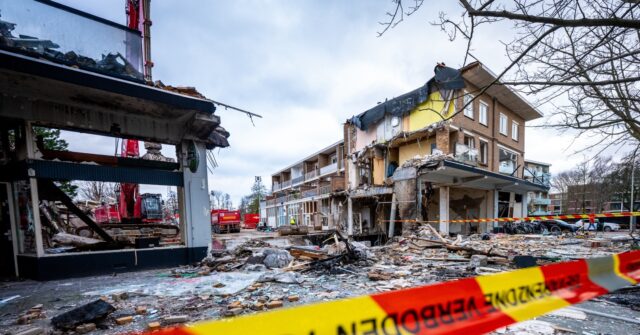On Tuesday, Dutch Police announced the arrest of three suspects in connection with a devastating explosion that occurred in a residential area of The Hague on Saturday. This blast took place in an apartment building in the Tarwekamp area, resulting in the tragic deaths of at least six individuals, with four others requiring hospitalization. The swift arrest of the suspects highlights the urgency and seriousness with which law enforcement is approaching this case. In the late hours of Monday, police apprehended these individuals as part of their ongoing investigation, signaling their commitment to uncovering the circumstances surrounding the explosion.
As part of their investigative efforts, Dutch police also seized several vehicles, although it remains unclear whether one of the cars is linked to a witness report of a vehicle speeding from the scene shortly after the explosion occurred. Details about the identities of the detained suspects have not been disclosed, and police have placed restrictions on their communication, allowing only attorney meetings. The authorities have expressed caution in sharing further substantial details, noting that the investigation is still unfolding and may lead to additional arrests in the future.
While the focus remains on the ongoing investigation, the stability of the damaged apartment complex is a priority, with work underway to ensure its safety. Police stated that forensic investigations will resume once the site is declared safe for their activities. The Mayor of The Hague, Jan van Zanen, commended the police for their rapid actions in making the arrests, indicating that effective detective work is essential in addressing the complexities of the case. The arrests have been viewed as a crucial step, but many questions about the motives and circumstances of the explosion still linger.
Initial findings from the police have suggested that there was no evidence of a drug lab within the building prior to the explosion. Furthermore, reports indicate that those residing in the apartments were not previously known to law enforcement. This aspect has led Dutch media to refrain from speculating extensively on possible motives. However, international outlets such as Germany’s Bild have pointed out the backdrop of ongoing gang warfare in the Netherlands, particularly linked to the notorious Moroccan ‘Mocro Mafia,’ which has been implicated in various criminal activities, including explosive attacks on rival drug dealers.
The presence of the Mocro Mafia has underscored the troubling trend of violence associated with organized crime in the Netherlands, posing a significant challenge to public safety. Justice Minister David van Weel addressed the situation, describing it as a “huge problem” that the country faces concerning explosive attacks. The alarming statistics indicate a sharp rise in such incidents, with over 1,017 recorded attacks involving explosives in 2023 alone. The use of heavy fireworks, capable of causing damage comparable to TNT, has been highlighted as a tactic used by criminal organizations, contributing to the escalating violence and potential risks to civilian safety.
In summary, the recent explosion in The Hague represents a significant incident that not only resulted in tragic loss of life but also reflects broader issues related to organized crime and public safety in the Netherlands. With three suspects arrested and ongoing investigations, authorities are striving to uncover the truth behind this violent event while dealing with the pervasive threat posed by criminal gangs in the region. The overall implications of gang-related violence and the need for enhanced security measures are becoming increasingly critical considerations for Dutch society. As the situation develops, the focus will remain on both justice for the victims and the broader implications for community safety and criminal activity within the country.

